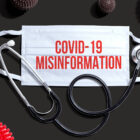Fines & Sanctions
Med Board Fines Two Doctors After Bristol Hospital Patient Dies Of Sepsis
|
The state Medical Examining Board today issued $5,000 fines to three physicians including two Bristol Hospital Emergency Department doctors who failed to diagnose and treat a patient with sepsis who later died. Another physician was also disciplined by the board for failing to act on test results. Dr. Syed Hadi and Dr. Waile Ramadan both treated a man who was brought to the Bristol Hospital Emergency Department on Jan. 7, 2019 with a high fever and other symptoms of a bacterial infection but never prescribed antibiotics, according to state Department of Public Health (DPH) investigators. The man died of sepsis two days later, documents said.






